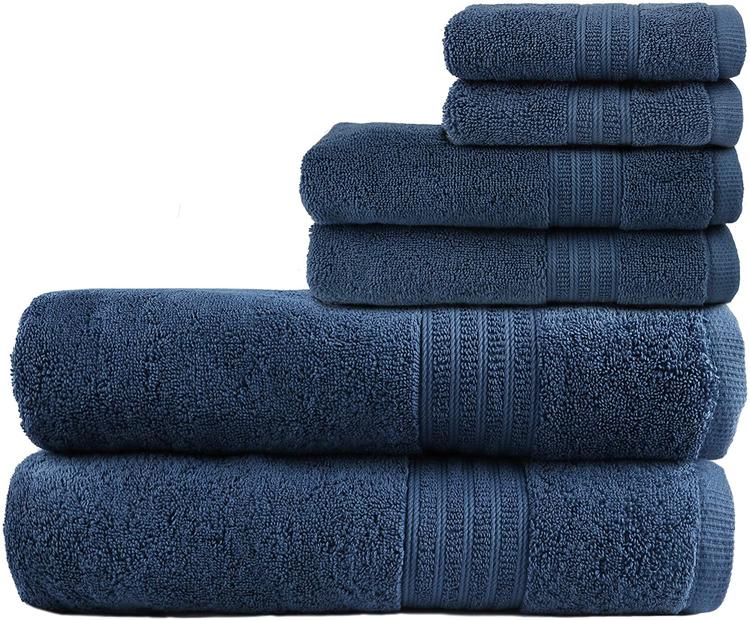Towels, if treated well, can last for years. It’s worth doing the research to make sure you start off with the best possible range to make sure they go the distance. We’ve found that cost doesn’t necessarily denote quality, so don’t jump to that assumption. We’ve assessed 11 options from different brands to find the best towels.
Thread count: The higher the gsm (gram per sq metre) the more luxurious they will typically feel. Look for those on the upper end of 500-650gsm.
Design: Look for double-turned edges with double stitching – the reinforcement will reduce fraying.

Size options: Towel ranges can come in anything from face cloths to extra large bath sheets. For drying yourself after a bath/shower, you will be looking for a bath towel or larger. These are the typical dimensions but it's worth wrapping one around you in-store to work out which size is best for you.
• Bath towel: L130 x W70cm• Bath sheet: L150 x W90cm• XL bath sheet: L180 x W100cm
There's no hard and fast rule for how long you should keep your towels. Every year or so, inspect your towels for fraying/holes and have a good sort out. Look for local textile recycling bins that can reuse them or, alternatively, use them for drying your pets or take to animal shelters who will happily make good use of them.
This can, unfortunately, be very common with new towels (or very old towels). It usually takes a good 10 washes before the shedding subsides. Make sure you shake them after washing and after drying to remove the excess lint – this also keeps them soft and fluffy. It's also more common in darker colour variants due to the dyeing process.
Avoid fabric conditioner as this can reduce absorption. Instead, to keep towels soft, shake them out after they’ve been washed before placing in a tumble dryer or on an outdoor washing line. If you do place them outdoors, avoid direct sunlight as the UV rays can cause fading. Again, shake the towels out once they have been dried and avoid over-drying them.
The build-up of limescale, particularly in hard-water areas, can also affect softness. Regularly run your washing machine on empty, using the hottest cycle, with a cup of distilled white wine vinegar in the detergent drawer, to prevent this build-up transferring to your towels. Check you're not ruining your bath towels by avoiding these common mishaps.
We send our towels off to an independent lab to assess how quickly they absorb water under a controlled environment. The lab also tests their mass per unit area to provide an objective measure of the towel's density (physically how much absorbent fibre is present in a given area).
Back in our in-house lab, we perform repeated wash tests, following care label instructions to assess for shrinkage and colour fade. This is measured using a DigiEye digital colour measurement and imaging system. We also assess them by eye in natural daylight. We have a consumer panel who use the towels in their own homes, assessing them on their appearance, absorbency and value for money. We then analyse and combine all of the data to establish which towels we'd happily recommend.